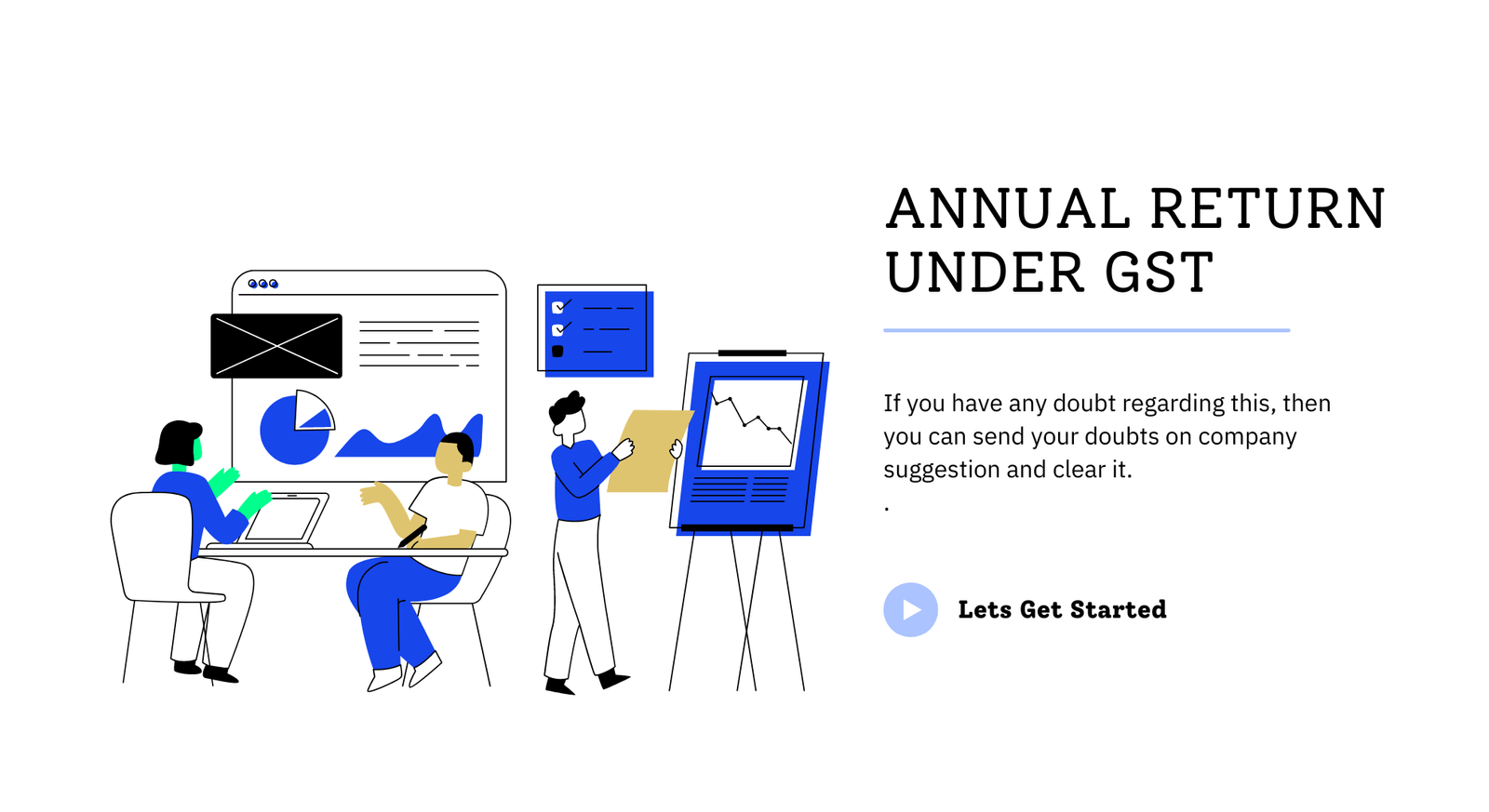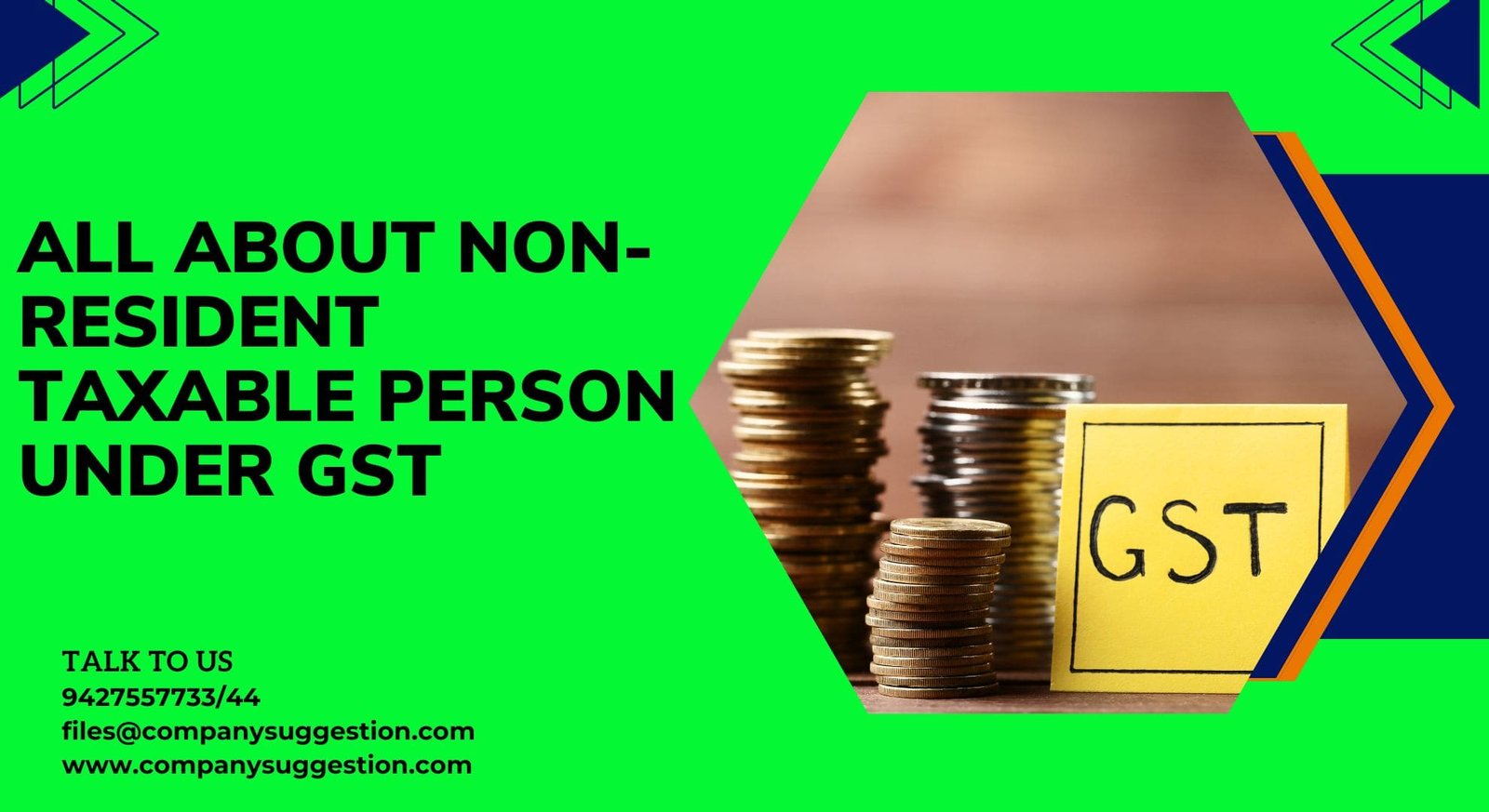ANNUAL RETURN UNDER GST :
WHAT IS GST?
GST stands for Goods and Services Tax. It is a type of indirect tax that is levied on the supply of goods and services in India. GST replaced multiple indirect taxes such as excise duty, service tax, value-added tax (VAT), central sales tax, and others.
GST is a consumption-based tax that is collected at every stage of the supply chain, from manufacturers to retailers, and ultimately the end consumer. It is a value-added tax, which means that businesses can claim back the GST paid on purchases as input tax credit, thus reducing the tax burden on them.
5%, 12%, 18%, and 28% – based on the type of goods and services supplied. Certain goods and services, such as alcohol, petrol, and diesel, are not currently subject to GST.
ALL ABOUT RETURNS
Under the Goods and Services Tax (GST) system, taxpayers are required to file various returns throughout the year. The most common returns are GSTR-1, GSTR-2A, GSTR-3B, and GSTR-9.
However, there is no specific return called the “annual return” under GST. Instead, GSTR-9 is the return that is filed annually by registered taxpayers under GST.
GSTR-9 is an annual return that summarizes the taxpayer’s sales and purchases for the year. It includes details of all inward and outward supplies made during the financial year, input tax credit availed and reversed, and any tax liabilities payable for the year.
All registered taxpayers who have filed GSTR-1, GSTR-2A, and GSTR-3B during the financial year are required to file GSTR-9 on or before the 31st of December of the subsequent financial year. However, taxpayers with an annual turnover of up to 2 crores can opt for GSTR-9C, which is a reconciliation statement-cum-certification, instead of filing GSTR-9.
A GST return is a document that summarizes the details of all sales, purchases, and tax paid by a registered taxpayer for a specific period under the Goods and Services Tax (GST) system. The GST returns are filed electronically on the GST portal and are used to calculate the taxpayer’s tax liability for the period.
There are several types of GST returns, including:
GSTR-1: This return is filed by the supplier and contains details of all outward supplies made by the supplier for the period.
GSTR-2A: This return is an auto-generated document that is generated for the recipient based on the details filed by the supplier in their GSTR-1 return.
GSTR-3B: This is a monthly summary return that is filed by taxpayers to report their total taxable value, ITC availed, and tax payable for the period.
GSTR-4: This return is filed by taxpayers who have opted for the Composition Scheme under GST.
GSTR-5: This return is filed by non-resident foreign taxpayers who are registered under GST.
GSTR-6: This return is filed by Input Service Distributors to report the details of the ITC distributed to their units during the period.
GSTR-7: This type of return is filed by taxpayers who are required to deduct TDS (Tax Deducted at Source) under GST.
GSTR-8: This return is filed by e-commerce operators to report the details of supplies made through their platform and the amount of TCS (Tax Collected at Source) collected during the period.
WHEN TO FILE?
The date for filing the annual return under GST (Goods and Services Tax) for a particular financial year is December 31st of the following financial year.
For example, for the financial year 2021-2022, the deadline for filing the annual return would be December 31, 2022.
It is important to note that the annual return under GST is a summary of all the monthly or quarterly returns filed during the financial year. All registered taxpayers with a turnover exceeding Rs. 2 crores are required to file the annual return.
Additionally, taxpayers who have opted for the Composition Scheme under GST are not required to file an annual return. However, they need to file a quarterly return.
It is advisable to file the annual return well in advance of the deadline to avoid any last-minute rush or penalties for late filing.













